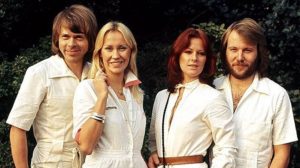Later than expected, from the lands near my loved Baltic Sea, the pop music Swedish group ABBA has come back. During an special show with digital avatars (holograms), broadcasted in London last Thursday, the two men of the band (Benny Andersson and Björn Ulvaeus) announced a new concert named “Voyage” in May 2022 in London. Tickets for the concert go on general sale tomorrow.
Why I said “later than expected”? Basically, because of the pandemics, but the planification of the new album had been mtud for some time. In effect, the avatar concept was announced in 2016 by music manager Simon Fuller. Two years more passed and a TV show coproduced by NBC and BBC, has not yet been aired.
So, 39 years had passed since ABBA 1981’s last album “The Visitors”. In the world, a lot of events and situations occured: third global wave of democracy, Gorbachov and his Perestroika, the end of Berlin Wall and Soviet Union, the war against terrorism, several financial crisis, the Arab Spring, the Brexit, Trump, the delusion with peace and liberalism and, on the contrary, this particular moment of expectations with populism and conservatism around the planet.
But ABBA still have a loyal fans base and countless tribute acts. Because, despite itw own unpopular language, the four Swedish built a so strong cultural phenomenon through the time. New generations know them through other groups and then they rediscovered its music. Lyrics are emotional and influential, no matter if you are feeling happy or sad. We know that music lived, lives and will live beyond the times.
So, welcome ABBA in this new technological (and revolutionary) format and let us dance all of our negative energy out: enjoy them.






